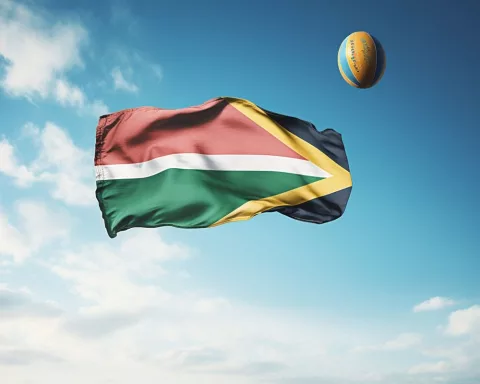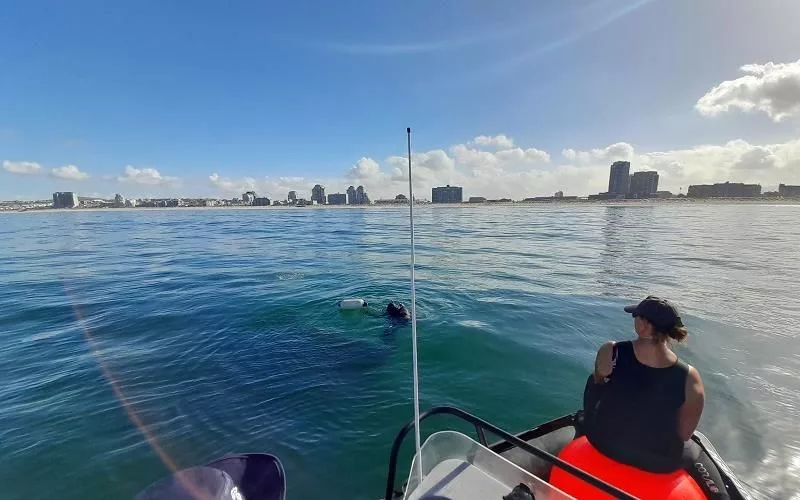Rassie Erasmus had an exciting idea to create a fortnight long rugby tournament with games condensed into just 20 minutes per half, inspired by T20 cricket. He planned to auction off players and coaches in a televised event in London, but the innovative idea was met with obstacles. Despite securing prominent sponsors and reaching out to nearly 100 top international players, a complaint from the New Zealand Rugby CEO resulted in a warning from the International Rugby Board, ultimately leading to the termination of the concept.
What was Rassie Erasmus’s innovative rugby concept?
Rassie Erasmus envisioned a fortnight long tournament in January, with rugby games compacted into a thrilling 20 minutes per half, inspired by the rapid-fire T20 cricket. He planned to organize a televised event in London where players and coaches would be auctioned and reached out to nearly 100 top international players to participate. However, the innovative idea encountered obstacles and was terminated after a warning from the International Rugby Board.
Rassie Erasmus is a personality that embodies creativity in the realm of rugby. In his most recent autobiography, “Rassie: Stories of Life and Rugby,” he shares an intriguing narrative. He narrates an attempt to infuse novelty into franchise rugby, taking a cue from the rapid-fire T20 cricket. He imagined a fortnight long tournament in January, with rugby games compacted into a thrilling 20 minutes per half, offering an experience akin to the adrenaline of T20 matches.
The Concept and Its Planning
Erasmus’s exciting concept involved fans watching some of the best players in the world compete in just a little over two hours. The concept was designed to be an extension of preseason training. The idea was carefully considered, with sports science experts brought in to study if such a schedule would be too demanding for the players.
Erasmus and his collaborators put in considerable effort into planning a televised event in London where players and coaches would be auctioned. They understood the significance of sponsorship and secured backing from prominent sponsors and broadcasters. The project’s organizing team reached out to nearly 100 top international players to participate in eight privately-owned franchises.
Encountering Obstacles
However, this innovative venture encountered a stumbling block. The plot began to unravel when the team approached the All Blacks’ legends, Richie McCaw and Dan Carter, in early 2010. Erasmus recounts this episode, stating that their interaction with players from the Crusaders, including McCaw and Carter, following a Super Rugby match against the Stormers in Cape Town, resulted in an unforeseen twist.
The Crusaders’ coaching staff, presuming their players were being lured to join the Stormers, shared the incident with New Zealand Rugby CEO, Steve Tew. Consequently, Tew lodged an official complaint with the then-president of SA Rugby, Regan Hoskins. As Erasmus notes, “Unfortunately, they weren’t in favor of the competition and made it clear they wouldn’t allow their players to take part.” Despite this setback, the players held on due to the financial gains involved, which encouraged Erasmus and his team to continue with their plans.
An Abrupt End to an Innovative Idea
Yet, the decisive blow came from a direction they hadn’t anticipated. Tew involved the International Rugby Board (IRB), which resulted in a warning from the IRB to Erasmus and his team. The warning stated that any player or coach involved in the competition would risk a permanent ban from playing rugby. This marked a sudden termination of a concept that could have potentially transformed the landscape of franchise rugby.
Erasmus’s narrative highlights the trials and hurdles that often mark the path to innovation. His story is a testament to his unyielding spirit and determination to stretch the limits of the sport he is passionate about. It provides a fascinating insight into the off-field dynamics of rugby, unveiling the complexities that often remain hidden during gameplay. His unsuccessful attempt to merge the excitement of T20 cricket with the franchise rugby stands as a testimony to his inventive vision and unending quest for progress in the sport.
What was Rassie Erasmus’s innovative rugby concept?
Rassie Erasmus’s innovative rugby concept was a fortnight long tournament in January, with rugby games compacted into a thrilling 20 minutes per half, inspired by the rapid-fire T20 cricket.
How was the concept planned?
The idea was carefully considered, with sports science experts brought in to study if such a schedule would be too demanding for the players. Erasmus and his team secured backing from prominent sponsors and broadcasters. The project’s organizing team reached out to nearly 100 top international players to participate in eight privately-owned franchises.
What obstacles did Erasmus’s idea encounter?
The Crusaders’ coaching staff shared the incident of being approached by Erasmus’s team with New Zealand Rugby CEO, Steve Tew. Consequently, Tew lodged an official complaint with the then-president of SA Rugby, Regan Hoskins. Despite this setback, the players held on due to the financial gains involved. However, the decisive blow came from the International Rugby Board (IRB), which resulted in a warning to Erasmus and his team that any player or coach involved in the competition would risk a permanent ban from playing rugby.
Why did the concept ultimately fail?
Due to the warning from the IRB, the concept was terminated, and the tournament never came to fruition.
How did Erasmus plan to auction off players and coaches?
Erasmus planned to organize a televised event in London where players and coaches would be auctioned.
What does Erasmus’s narrative tell us?
Erasmus’s narrative highlights the trials and hurdles that often mark the path to innovation. It provides a fascinating insight into the off-field dynamics of rugby, unveiling the complexities that often remain hidden during gameplay. His unsuccessful attempt to merge the excitement of T20 cricket with the franchise rugby stands as a testimony to his inventive vision and unending quest for progress in the sport.












